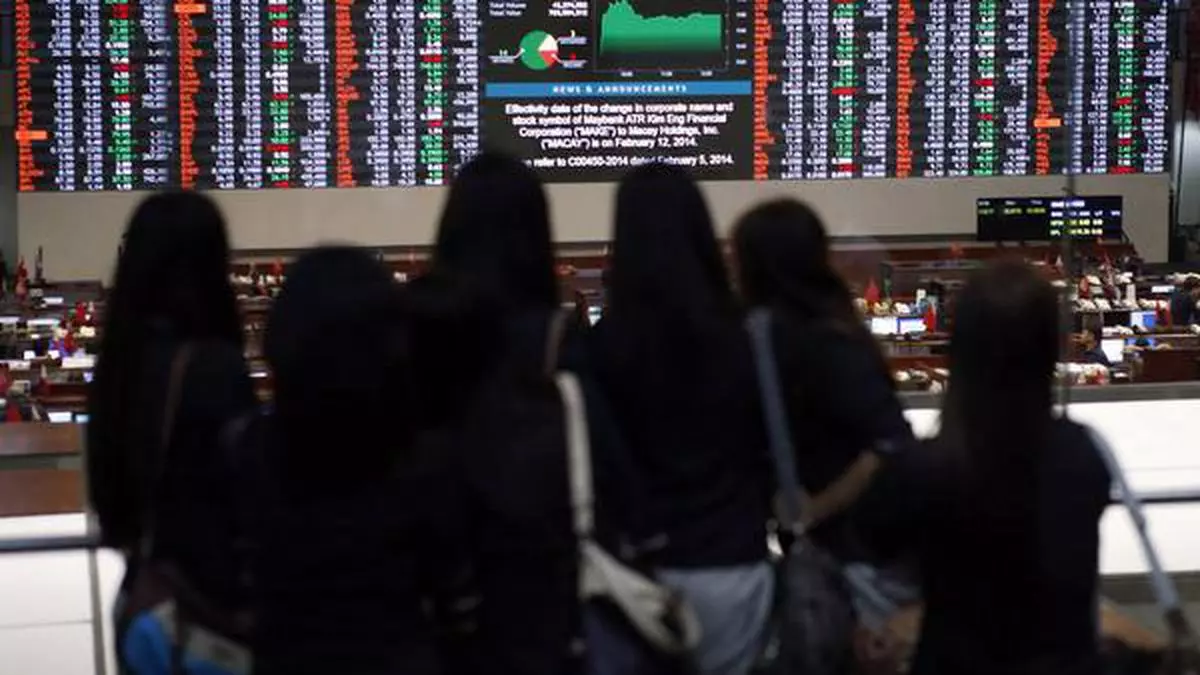Asian markets mostly higher after Biden-McCarthy deal on US debt
Asian stocks mostly rose after US President Joe Biden and House Speaker Kevin McCarthy reached a final agreement on a deal to raise the US national debt ceiling.
Tokyo, Sydney and Shanghai advanced, while Hong Kong fell behind. Markets in Seoul are closed for a holiday.
The agreement on US debt relieved what was a potentially big threat to the markets all over the world. Biden and McCarthy worked over the weekend to ensure enough support in Congress to pass the measure before the June 5 deadline and avoid a crippling federal default.
Markets are reacting so far with caution. Excited, but cautious, said Clifford Bennett, chief economist at ACY Securities, in a comment.
This agreement pushes the issue into more politically friendly times after the presidential elections in two years. Nothing is certain in that regard, and it is likely that the solution will be more difficult at the time, than it was on this occasion,” Bennett said.
The Nikkei 225 index in Tokyo jumped about 2 percent in early trading, but was up 1.3 percent at 31,325 by midday. Sydney’s S&P/ASX 200 jumped 1 percent to 7,228.60. The Shanghai Composite Index rose 0.2 percent to 3,218.26.
In Hong Kong, the Hang Seng Index fell 0.3 percent to 18,696.34.
US markets will be closed for the holiday on Monday. Investors have another busy week ahead of economic updates in the US, including consumer confidence and employment data.
US markets
On Friday, technology stocks extended strong gains on Wall Street after chipmaker Marvel Technology jumped 32.4 percent after the chipmaker said it expected artificial intelligence revenues in fiscal 2024 to at least double from a year earlier. It follows Thursday’s report from chip maker Nvidia, which gave high expectations for upcoming sales related to artificial intelligence.
The upbeat end to the week for major US indices comes amid lingering concern about persistently high inflation and broadly weak corporate earnings.
The S&P 500 rose 1.3 percent to close at 4,205.45. The Dow Jones Industrial Average rose 1 percent to 33,093.34. The technology-focused Nasdaq was the biggest gainer, rising 2.2 percent to 12,975.69. The index rose 2.5 percent for the week as artificial intelligence became a major focus for investors.
artificial intelligence
The field of revolutionary artificial intelligence has become a hot issue. Critics warn it is a potential bubble, but proponents say it could be the latest revolution to reshape the global economy. The country’s financial watchdog, the Consumer Finance Protection Bureau, said it was working to ensure that companies follow the law when they use AI.
Wall Street and the broader economy already had a whole list of concerns before the threat of a US default became sharply high on the list.
Inflation fears
The key inflation measure closely watched by the Federal Reserve rose higher than economists expected in April.
Persistent pressure from inflation is complicating the Fed’s fight against rising prices. The central bank has been aggressively raising interest rates since 2022, but recently signaled that it would likely give up on a rate hike when it meets in mid-June. The government’s latest inflation report raises concerns about the Fed’s next move.
Recent inflation data also highlighted the resilience of continued consumer spending, which, along with a strong job market, has been a key bulwark against recession. The economy grew at a slow 1.3 percent annual rate from January to March, and is expected to accelerate to a 2 percent pace in the current April-June quarter.
Inflation and concerns about a looming recession affected corporate earnings and outlook. The company’s latest round of earnings is coming to a close, with corporate earnings in the S&P 500 contracting nearly 2 percent.
Cosmetics company Ulta Beauty fell 13.4 percent after cutting its profit margin forecast. And Big Lots, which specializes in retailing, fell 13.3 percent, after posting a loss in the fourth quarter that was much larger than analysts had expected.
Investors rewarded many companies that reported strong financial results. The gap rose 12.4 percent after announcing strong first-quarter earnings.
Also read: The temporary US debt ceiling agreement supports Crude Oil
In other trading on Monday, US benchmark crude oil added 81 cents to $73.48 a barrel in electronic trading on the New York Mercantile Exchange. It rose 84 cents to $72.67 a barrel on Friday.
The dollar fell to 140.44 yen from 140.59 yen. The euro rose to $1.0734 from $1.0724.
